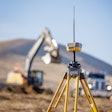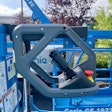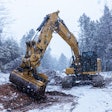
Focus on your area of expertise and hone those skills, but also be cognizant of industry trends. If you notice a shift, such as a new method or technology being leveraged that could improve a project outcome, don’t resist the change, look at it as a new tool for your toolbox and embrace it.
-Fraser Patterson, founder and CEO of Skillit
IRONPROS: What construction jobs are in high demand right now? What jobs are in low demand?
Skillit: We’re seeing a rise in self-perform (builders using in-house skilled labor for critical construction activities rather than sub-contractors) among the nation’s leading builders, including Skillit customers Brasfield & Gorrie and JE Dunn. Critical construction activities often include concrete, heavy equipment operation, electrical, plumbing and carpentry so craft workers with those skills are in high demand.
We’re also seeing high demand for drywallers, general laborers, HVAC workers, pipefitters and pipelayers, and of course, solar workers or anyone with clean energy experience.
What’s particularly interesting are the opportunities that arise when we’re able to shift the focus away from singular trade labels to a more skills-based model. As a result, more workers who are qualified can be considered for more jobs based on their actual and not perceived abilities. For example, there is a 50-60% overlap of skills between welders and pipefitters.
Data such as this has enabled us to double the size of the candidate pool nationwide for both trades.
IRONPROS: What construction jobs are prone to being replaced by robots, autonomous equipment or AI?
Skillit: The job replacement narrative is a popular one and may prove true for some, especially knowledge-based roles. That said we are a long way off from job replacement risk on actual jobsites in the construction business. Jobsites are far too complex, and robots and AI aren’t mature enough to meet the demands of the build world.
That’s not to say there aren’t opportunities for AI and robotics in construction, but those technologies will be used alongside craft workers, certainly not to replace them outright.
IRONPROS: What can construction professionals do to ensure they stay relevant in the construction job market?
Skillit: Focus on your area of expertise and hone those skills, but also be cognizant of industry trends. If you notice a shift, such as a new method or technology being leveraged that could improve a project outcome, don’t resist the change, look at it as a new tool for your toolbox and embrace it. One of the best examples is clean energy.
If you're an electrician, heavy equipment operator or even carpenter who's been able to get real world experience on these kinds of jobsites, you've seen demand for your skills go through the roof.
IRONPROS: Provide an overview of Skillit and its mission.
Skillit: Skillit is the world’s first data-driven staffing platform for skilled construction workers. We have the largest and fastest-growing database of qualified craft workers, which includes more than 40,000 workers. Simply put, we're using better data to fix the skilled labor crisis.
Our unique skills-first approach allows us to capture skill information at a more granular level than anyone has ever done before, as well as other information such as hiring characteristics, pay aspirations and relocation plans. With this information, we’re creating complete 360-degree worker profiles that make it easy for employers to select the right workers at the right time.
This enables our customers to engage in actual skills-based hiring instead of using proxies such as job title or past employer (although we of course capture that information as well). Individual skills can be used to identify highly qualified candidates that satisfy the role regardless of past titles or employers.
IRONPROS: What solutions are you providing for construction businesses?
Skillit: With over two million proprietary data points on craft workers, we capture and deliver invaluable information to create data-rich worker profiles and actionable intelligence for construction staffing teams.
Skillit customers are seeing results including:
- 10x Qualified Candidates
- 5x More Interviews
- 70% Worker Connection Rate (1.8x better than other solutions)
- 2x Better Retention
- 4.6x Annual ROI
IRONPROS: What can customers expect from Skillit in 2024?
Skillit: We’ve made several significant product updates already this year, including in-platform direct messaging, workflow automation, best practice templates for messaging, enhanced user profiles and advanced skills-based search. We’ve also seen dramatic growth in our labor supply, increasing from just 1,000 members in early 2023 to more than 40,000 in 2024.
As we build out Skillit, customers can expect to see a continuous progression of innovative features that are designed to streamline processes for recruiters. For craft workers, we’ll continue to add more features designed specifically for them to make it easy to have a professional digital profile. Ultimately, we will continue to forge a new path for construction staffing and do whatever it takes to increase connections between contractors and qualified candidates who fit the roles they’re hiring for.
ABOUT FRASER PATTERSON
Fraser Patterson is a repeat contech founder, skilled tradesman, general contractor, educator and mentor. In 2021 Fraser founded Skillit, a skills-based, data-driven platform that provides mid-market and large ENR contractors access to qualified, skilled workers nationwide and a suite of worker-first hiring tools.
Before Skillit, Fraser was the co-founder and CEO of Bolster, a tech-enabled design-build company and OnisVida, a remodeling platform that helps homeowners manage remodeling projects. Fraser began his career as an apprentice carpenter in Scotland before starting a general contracting firm in London.















